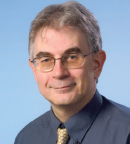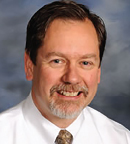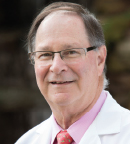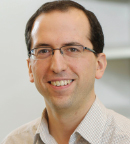For oncology professionals looking to maximize their learning and networking opportunities, ASCO will be offering two types of Pre–Annual Meeting Educational Programs ahead of its 2016 Annual Meeting in Chicago this summer. Offered since 2012, Pre–Annual Meeting Seminars are a series of in-depth educational sessions dedicated to topics of interest in the oncology community. New this year, ASCO will offer Pre–Annual Meeting Case-Based Courses, which include expert-led panels focusing on case-based learning.
Pre-Annual Meeting Seminars
Three seminars will be held onsite at McCormick Place in Chicago from 1:00 PM to 5:00 PM on Thursday, June 2, and from 7:30 AM to 11:00 AM on Friday, June 3. Registration is $100 for ASCO members and $200 for nonmembers before April 27, 2016, and includes a boxed lunch on Thursday and a continental breakfast on Friday.
New Drugs in Oncology Seminar
As clinical cancer research continues to advance, we see new therapies and strategies for care emerge. Oncology professionals have a growing need to evaluate new evidence and explore the possibility of integrating new approaches into the care of their patients. To meet these needs, the New Drugs in Oncology Seminar will focus on the theoretical and practical aspects of both recently and soon-to-be-approved drugs, including the mechanisms of action, administration, toxicity, side-effect management, and use in the clinic.

George Sledge, MD, FASCO

Anthony Tolcher, MD, FRCP(C)
The seminar, co-chaired by George Sledge, MD, FASCO, Professor of Medicine and Chief of the Division of Oncology at Stanford University Medical Center, and Anthony Tolcher, MD, Director of Clinical Research at South Texas Accelerated Research Therapeutics, will also highlight new and evolving clinical trial designs and current controversies in drug development.
The Economics of Cancer Care Seminar
High-value care depends on oncology practices’ awareness of and response to various economic shifts and pressures. As the oncology landscape becomes more complex, oncology professionals must assimilate a wealth of information into their individual research and practice decisions.
Now in its second year, the Economics of Cancer Care Seminar will educate attendees on current challenges and opportunities in cancer economics, with the overarching theme of “Value in Cancer Care.” Speakers will include academic researchers in economics, health economics, and health services research, as well as physicians, insurers, and policymakers.
The first day of the seminar will focus on innovative cancer treatment models in theory and in practice. Presenters will examine current research and share their experiences with various reimbursement, coverage, and treatment models. The second day of the seminar will review emerging opportunities for cancer treatment spending reductions and quality-of-care improvements, with presentations on topics such as cancer screening, palliative care, and drug supply issues. The seminar will close with a panel discussion on the Medicare Access and CHIP Reauthorization Act of 2015, the impact this law will have on oncology practices in the United States, and how oncology professionals can begin preparing for these changes.
How to Integrate Tumor Immunotherapy Into Your Clinical Practice Seminar
In the rapidly expanding field of immuno-oncology, practicing physicians are faced with the challenge of understanding evolving principles and new treatment models to provide optimal patient care.
Cosponsored with the Society for Immunotherapy of Cancer, this new seminar will provide a unique forum for clinical oncologists and other medical team members to deepen their knowledge and build their competence in discussing and using immunotherapy in the care of patients with cancer.
The first day of the seminar will address basic immunobiology concepts through a review of the immune system and its role in cancer, the foundation of host immune responses in cancer, and general approaches in tumor immunotherapy. The second day of the seminar will focus on the clinical applications of these concepts, as well as current research and trends, promising new strategies, and the value of immunotherapy in contemporary oncology practice.
Pre–Annual Meeting Case-Based Courses
Two case-based courses will be held onsite at McCormick Place in Chicago from 7:30 AM to 11:00 AM on Friday, June 3. Materials focused on real-world cases will be distributed to attendees in advance to help them prepare for the in-person meeting, which will include didactic presentations and panel discussions with recognized experts.
If registered on or before April 27, 2016, registration is $50 for ASCO members and $100 for nonmembers, and includes a continental breakfast on Friday.
Hematology for the Practicing Oncologist: Case-Based Course
Hematologic complications and comorbidities are common in patients with cancer and frequently must be addressed in overall cancer treatment and management strategies. Cosponsored with the American Society of Hematology, this course will focus on hematologic issues commonly encountered by medical oncologists in a consultative practice.

Gary I. Cohen, MD, FASCO
“Medical oncologists are constantly being asked to consult on benign hematology issues, whether or not they have done additional formal training in hematology,” said seminar Co-Chair Gary I. Cohen, MD, FASCO, Director of the Sandra and Malcolm Berman Cancer Institute at Greater Baltimore Medical Center and Associate Professor of Oncology at Johns Hopkins School of Medicine.
The course will utilize patient cases to address the etiology and treatment of hematologic issues such as deep vein thrombosis, pulmonary embolism, sickle cell disease, and iron-related disorders. Attendees will learn how to screen for, prevent, and manage these issues and others through case discussions led by experts in the field.
Genetics and Genomics for the Practicing Clinician: Case-Based Course

Michael F. Berger, PhD
Oncology is benefiting from revolutionary advances in DNA-sequencing technology and genomic analysis, and, as a result, the field is changing very rapidly, according to Michael F. Berger, PhD, Associate Director of the Marie-Josée and Henry R. Kravis Center for Molecular Oncology at Memorial Sloan-Kettering Cancer Center. Genetics and genomics are becoming essential components in the development of personalized care and treatment plans for patients with cancer.
This course will focus on cancer genomics and cancer genetics specifically for the clinician, providing updates on the latest science and diagnostic technologies available and illustrating how new information can be best utilized in the clinic.
“[Tumor genomic profiling] can provide important diagnostic and prognostic information and enable the selection of therapies tailored to a patient’s molecular profile,” Dr. Berger, Co-Chair of the seminar, said. “However, it can also reveal unexpected inherited susceptibilities to cancer and other diseases, with major consequences for patients and their families.”
The patient cases in this course will illustrate several concepts related to cancer genetics and genomics, such as determining which panel to order, accurately interpreting results, and incorporating genetic and genomic information into patient care.
Register Now
Attendees can register for one seminar or case-based course in addition to their Annual Meeting registration at am.asco.org. These live activities have each been approved for AMA PRA Category 1 Credit™. ■
© 2016. American Society of Clinical Oncology. All rights reserved.

